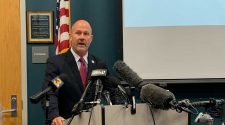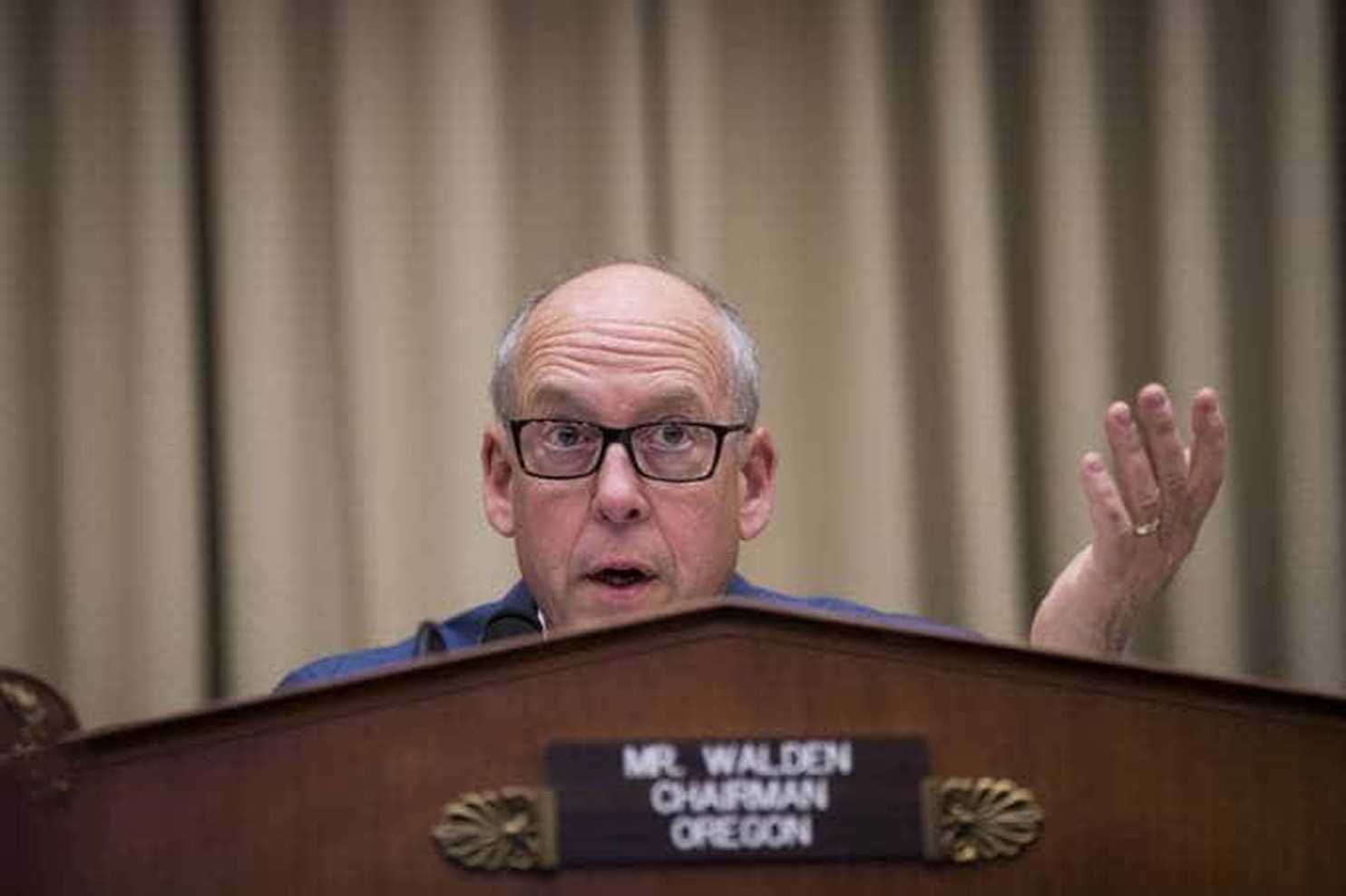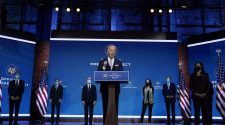Rep. Greg Walden (R-Ore.) questions witnesses during a House Energy and Commerce Committee. (Photo by Drew Angerer/Getty Images)
Ctrl + N
Lawmakers from both parties warned the Trump administration during a Capitol Hill hearing yesterday against including language in trade agreements shielding technology companies such as Facebook and Google from liability. There’s a growing debate over whether tech companies should continue to have such protections at home, and they’re wary of allowing the controversial language to expand abroad.
Rep. Frank Pallone (D-N.J.), the House Energy and Commerce Committee chair, and Rep. Greg Walden (Ore.), the committee’s top Republican, called out the Trump administration for failing to heed requests to consult the committee before including language similar to Section 230 of the Communications Decency Act in future trade agreements. Their criticism came as Robert Lighthizer, the Trump administration’s trade representative, turned down an invitation to testify on the future of the provision alongside academics, activists and tech companies such as Google and Reddit.
Lighthizer played point in the negotiations for the new NAFTA — known as USMCA — which are currently being considered in Congress, though stalled because of impeachment proceedings against President Trump. Section 230 language, which protects tech companies from lawsuits for content people post on their sites, is included in that agreement.
“Including provisions in trade agreements that are controversial to both Democrats and Republicans is not the way to get support from Congress, obviously,” Pallone said at the hearing. “Hopefully the ambassador will be more responsive to bipartisan requests in the future.”
The pair of lawmakers initially sent Lighthizer a letter raising concerns about the inclusion of language similar to Section 230 in trade agreements while the committee is considering drafting changes to the legal provision. They asked Lighthizer not to include such language in future trade agreements — and were dismayed to learn it was also included in a trade deal with Japan.
We’re “very frustrated about that and I hope the administration is paying attention and listening, because they haven’t up until this point on this matter,” Walden said.
The digs highlight how Section 230’s future is growing increasingly uncertain in the United States. Members of Congress are getting more serious about understanding how Section 230 works and potentially amending it as worries mount the provision is being abused to foster harmful content online.
There’s bipartisan interest in amending the law to address a host of concerns — ranging from the social media platforms’ shortcomings when it comes to moderating hate speech, election disinformation and the online sale of drugs like opioids. In the Senate, Sen. Josh Hawley (R-Mo.) has proposed changing Section 230 to address allegations that the tech companies are biased against conservatives.
Rep. Jan Schakowsky (D-Ill.), who chairs the House Energy subcommittee on consumer protection and commerce, said she doesn’t want Section 230 language in the USMCA.
““There is no place for that,” she said. “I think the laws in these other countries don’t accommodate what the U.S. has done about 230.”
“In the midst of that conversation because of all the new developments, I think it is just inappropriate right now to insert this liability protection into trade agreements,” she added.
David McCabe and Ana Swanson of the New York Times illustrated why the stakes are so high. He reports that American negotiators have proposed similar language in pacts with the European Union, Britain and members of the World Trade Organization.
“The administration’s push is the latest salvo in a global fight over who sets the rules for the internet,” David and Ana write. “While the rules for trading goods have largely been written — often by the United States — the world has far fewer standards for digital products. Countries are rushing into this vacuum, and in most cases writing regulations that are far more restrictive than the tech industry would prefer.”
Technology companies have argued that such language is a boon to the U.S. economy, according to Bloomberg News.
“Failing to include these protections — which have been a part of U.S. law for two decades — in trade agreements would negatively impact the countless small businesses and entrepreneurs that use online platforms to export and advertise their businesses,” Michael Beckerman, the president of the Internet Association, told Bloomberg News in a statement.
Schakowsky challenged Reddit chief executive Steven Huffman on his defense of including Section 230 language in trade agreements. He called Section 230 “uniquely American” in his opening remarks — and she said that underscored why the United States should be cautious about including it in trade deals.
But Michael Petricone, the head of government affairs at industry group CTA, said that’s exactly why the United States should include protections in such agreements. From Twitter:
The fact that #Section230 is “uniquely American” makes it even more important that it be part of trade agreements. It exports US values discourages our trading partners from restricting online speech or creating a totalitarian-style Internet. #Section230 #230Hearing
— michael petricone (@mpetricone) October 16, 2019
BITS, NIBBLES AND BYTES

Chris Hughes, co-chair of the Economic Security Project and a co-founder of Facebook. (Photo by Lisa Berg)
BITS: Facecbook co-founder Chris Hughes and the Economic Security Project — the organization he chairs — are launching a $10 million “anti-monopoly fund,” my colleague Tony Romm writes. The fund signals the next step in Hughes’s campaign against corporate consolidation following his high-profile call to break up the social network he co-founded earlier this year.
A series of high-profile philanthropies, including the George Soros-financed Open Society Foundations and the Omidyar Network, created by a founder of eBay, are backing the initiative. Tony writes Hughes and his allies want the funding to capture the greater antitrust scrutiny around big tech into “a broader movement” and take a closer look at potential monopolies in sectors like agriculture, health care and other industries.
The new fund intends to highlight competition and “move the issue from the margins to the mainstream,” Hughes said in an interview with Tony.
“You don’t need a degree in economics to know corporations and the wealthy have had a heavy hand in setting a lot of economic [policy] over the past several decades,” he added.
Hughes is announcing his expanded war chest as his call to break up Facebook are getting more attention — both in Washington and in the industry. Democrats spent a significant amount of time debating Sen. Elizabeth Warren’s (D-Mass.) plan to break up large tech companies at the Democratic debate in Ohio earlier this week.
Salesforce CEO Marc Benioff joined calls to break up Facebook in an interview with CNN yesterday.
“It’s addictive, it’s not good for you, they’re after your kids, they’re running political ads that aren’t true … and they’re also acquiring other companies and co-mingling [data those companies have on their users] into theirs,” Benioff told CNN’s Poppy Harlow in an interview promoting his new book. “And I think at that point, because they’re now doing that, that they probably should be broken up. Because they’re having an undue influence as the largest social media platform on the planet,” he said.
Marc Benioff has likened Facebook to “cigarettes” in the past. Now the Salesforce CEO says it’s time to break up the company. https://t.co/wD3NhqFJI8 pic.twitter.com/qHfvTBqM03
— CNN (@CNN) October 16, 2019
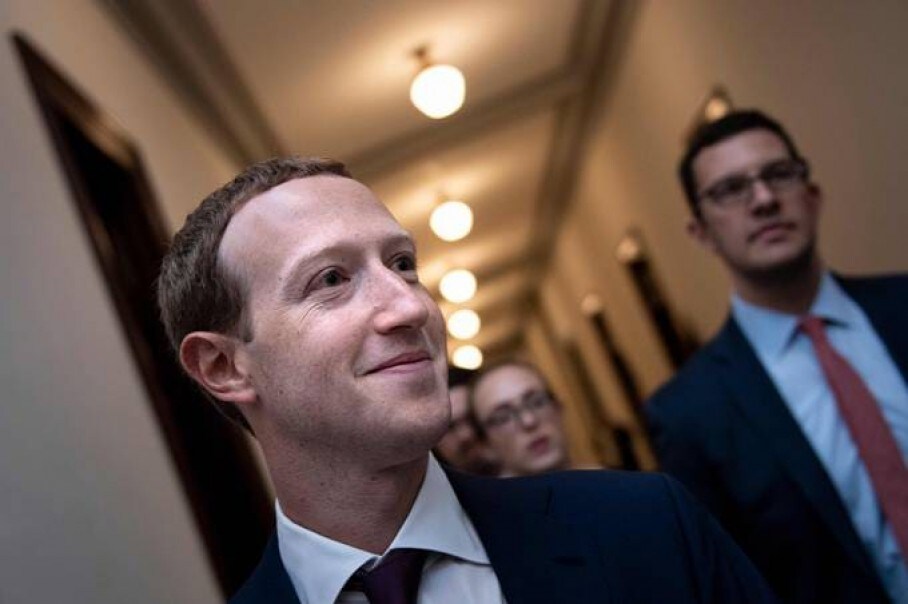
Facebook CEO Mark Zuckerberg. (Brendan Smialowski/ AFP/Getty Images)
NIBBLES: Facebook CEO Mark Zuckerberg met with Rep. Maxine Waters (D-Calif.), chair of the House Financial Services Committee, yesterday, Christopher Stern and Ashley Gold at The Information reported. Facebook wouldn’t say what Zuckerberg and Waters discussed, but Zuckerberg will appear in front of the Financial Services Committee next week as the sole witness for a hearing on Facebook’s impact on the financial services and housing sector.
Lawmakers probably will address concerns over Facebook’s cryptocurrency project Libra, which has been at the center of intense regulator scrutiny since a plan to launch it was announced in June. Waters and other lawmakers asked about the technology’s potential for money laundering, fraud and abuse during a July hearing. Waters has asked the company to halt its plans for the cryptocurrency until lawmakers can fully assess the project.
Zuckerberg will give a live-streamed speech about free speech today at Georgetown University. This is his second trip to Washington in less than a month; he last met with lawmakers in September to discuss Internet regulation.
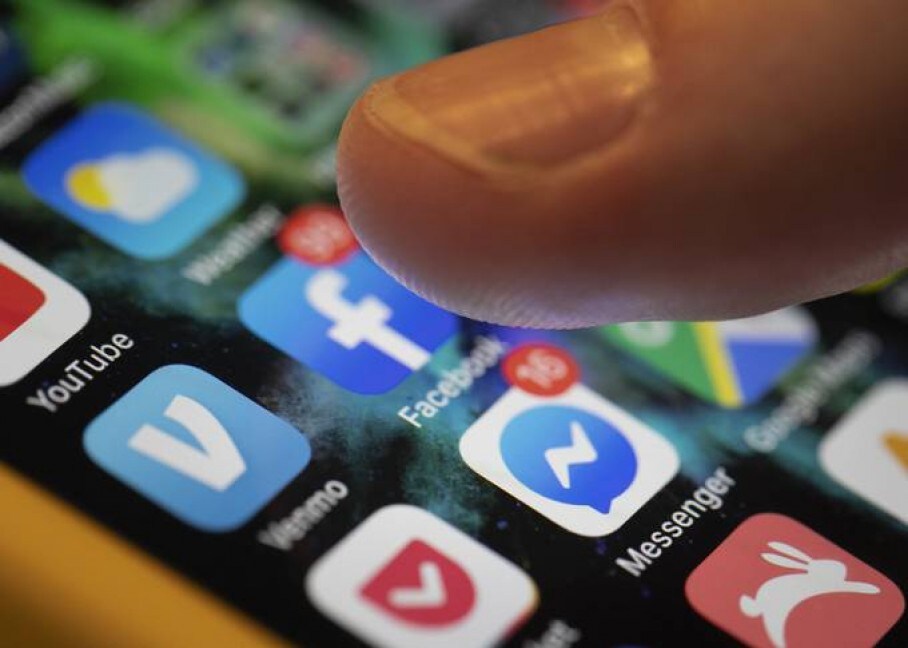
iPhone apps. (Jenny Kane/AP)
BYTES: The CEO of location technology company Foursquare is urging Congress to pass regulations to prevent widespread abuse of user location data. Giving apps unfettered access to user location data — which can then be sold to third parties such as bounty hunters — is a “recipe for abuse,” Foursquare CEO Jeff Glueck wrote in a recent New York Times op-ed. Foursquare is just the latest tech company to actively seek congressional regulation, a move that some critics suggest is a means of getting ahead of tougher policies.
While some companies, including Apple, have made efforts to increase user awareness of when apps are collecting their location data, transparency is far from a common industry practice. Glueck recommends that lawmakers mandate companies tell users how their location data is being used. Moreover, he says that companies need to make it “easy for users to opt out at any time.” Foursquare contractually mandates its partners to ask users to opt in for data sharing, Glueck writes.
Glueck, who warns Congress that “any reform that is overly burdensome on smaller companies, for instance, will only strengthen behemoths like Google and Facebook, putting challengers out of business and reducing innovation,” seems to be punching up at the data-collection practices of larger companies.
The CEO also pitched a “do no harm” principle, similar to the one used in the medical field, that would prevent location data from being “used to gouge consumers or deny them access to basic life services like loans, health care, insurance, employment, civil rights and educational opportunities.”
PRIVATE CLOUD
— News from the private sector:

Harry Potter: Wizards Unite, the latest game from the company behind Pokémon Go, lets players harness the magic of their childhood to combat monsters and collect shimmering digital artifacts across their local neighborhoods. Niantic’s apps certainly encourage gamers to get outdoors and get active, but behind the scenes, Wizards Unite is quietly casting another spell: collecting a surprising amount of data about where you go.
Kotaku
PUBLIC CLOUD
— News from the public sector:
%2Farc-anglerfish-washpost-prod-washpost%2FV3UP4THQJMI6TO362IBG5YGBTE.jpg&w=480&h=320)
Uber Technologies Inc. and Lyft Inc. may soon face stepped-up oversight after largely avoiding traditional rules during their rapid expansion in recent years, the chairman of the House Transportation and Infrastructure Committee warned on Wednesday.
Bloomberg
FAST FWD
— News about tech workforce and culture:
#TRENDING
— Tech news generating buzz around the Web:
CHECK-INS
— Today:
- The House Administration Subcomittee on Elections will hold a hearing on Voting Rights and Election Administration in America at 10 a.m.
- The Senate Commerce Subcommittee on Security will convene a hearing titled “Improving Security at America’s Airports: Stakeholder Perspectives,” at 10:30 a.m.
- Facebook CEO Mark Zuckerberg will give a speech at Georgetown University at 1pm ET.
— Coming up:
WIRED IN
Trump again pushed a debunked conspiracy about cybersecurity firm CrowdStrike (the Italian intepreter’s expressions are priceless):
Trump again pushes debunked Crowdstrike conspiracy:
“I still ask the FBI, ‘Where is the server?’ How come the FBI never got the server from the DNC? Where is the server? I want to see the server. Let’s see what’s on the server.” pic.twitter.com/xSTKNRegmW
— JM Rieger (@RiegerReport) October 16, 2019







